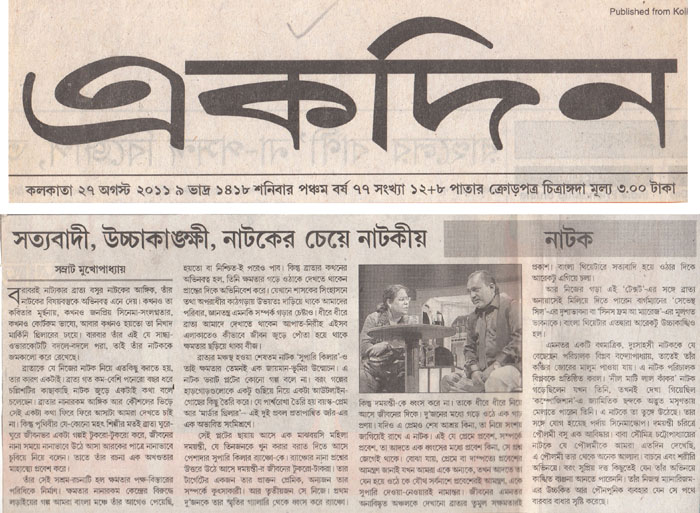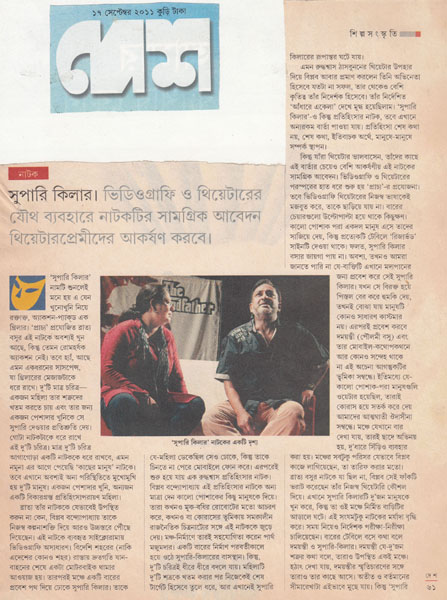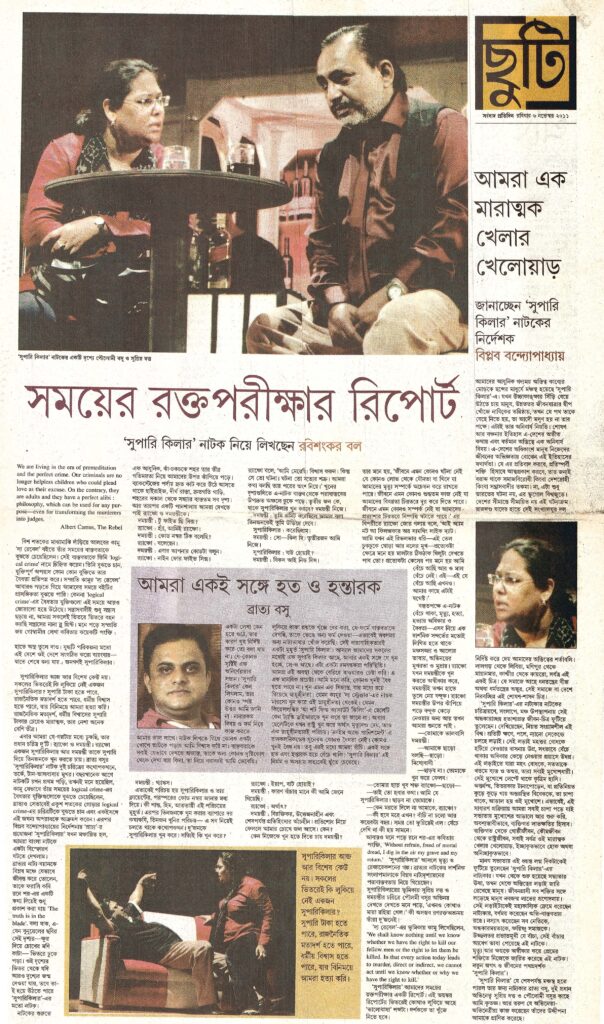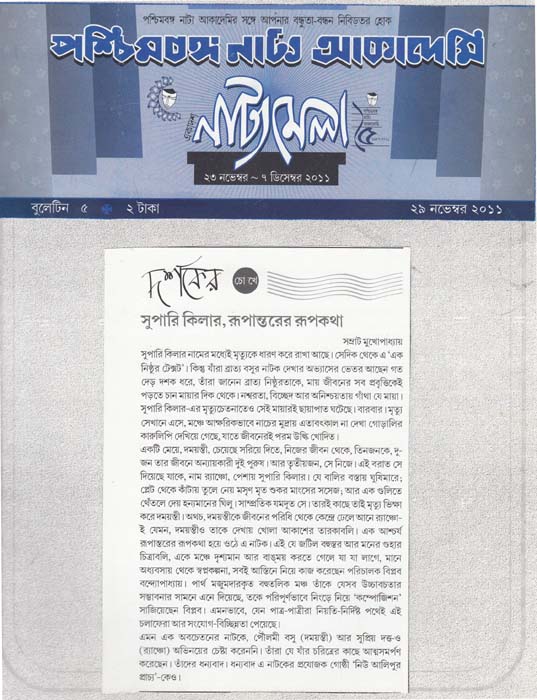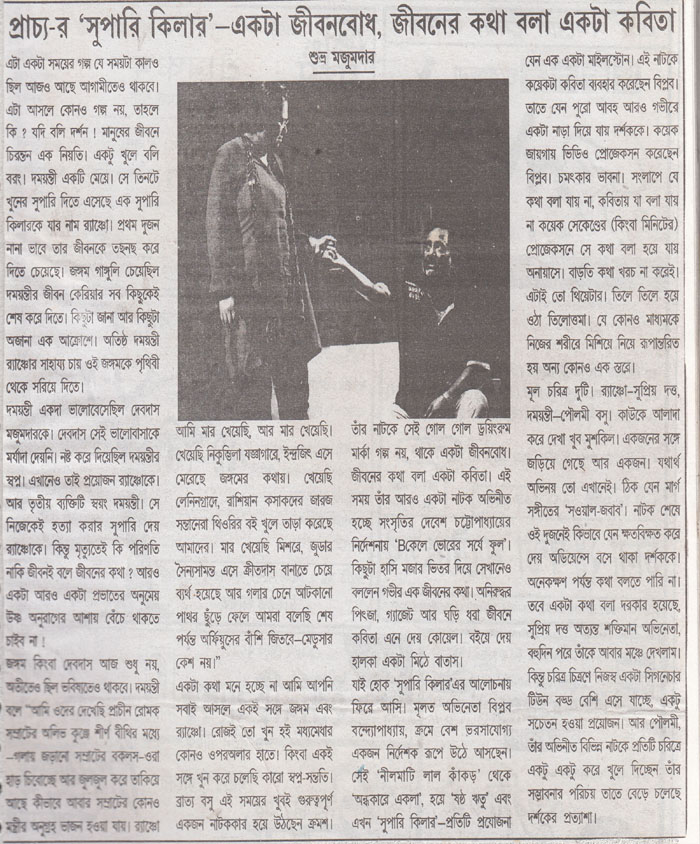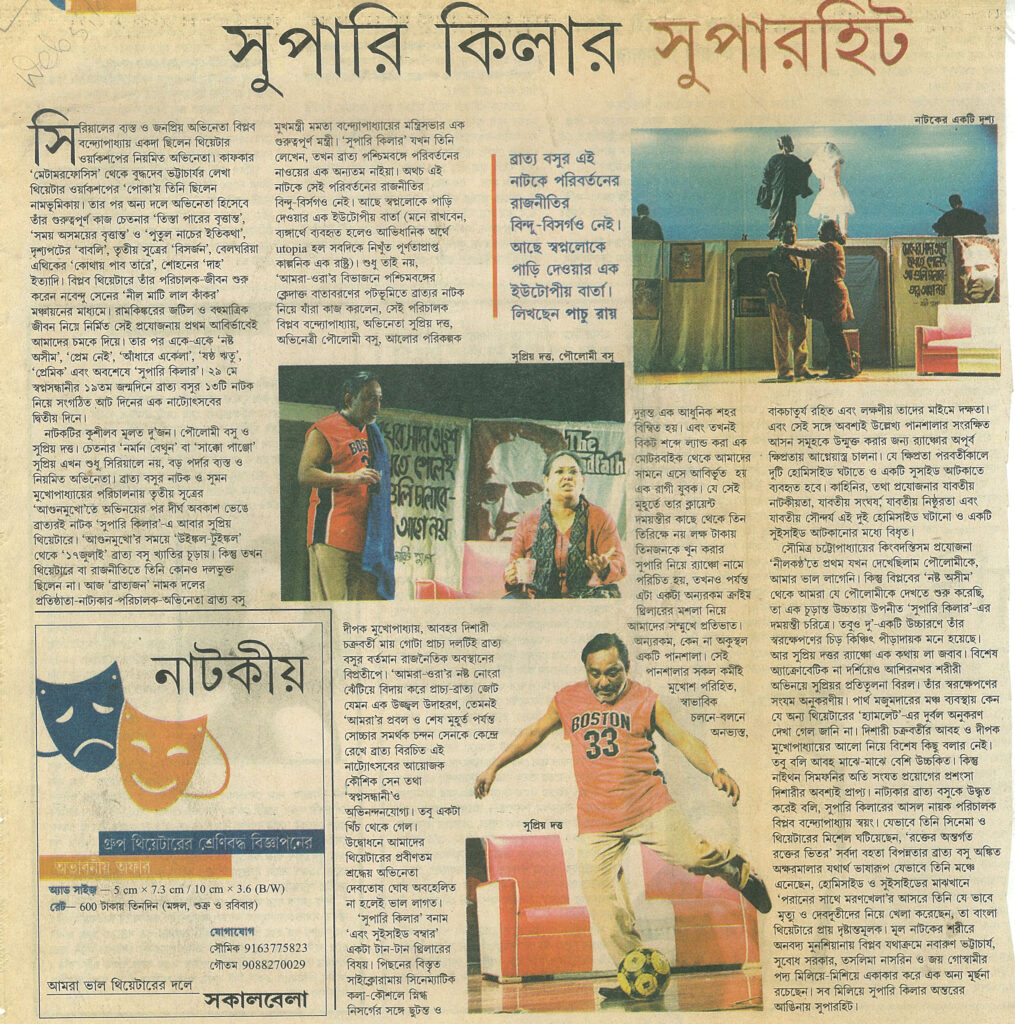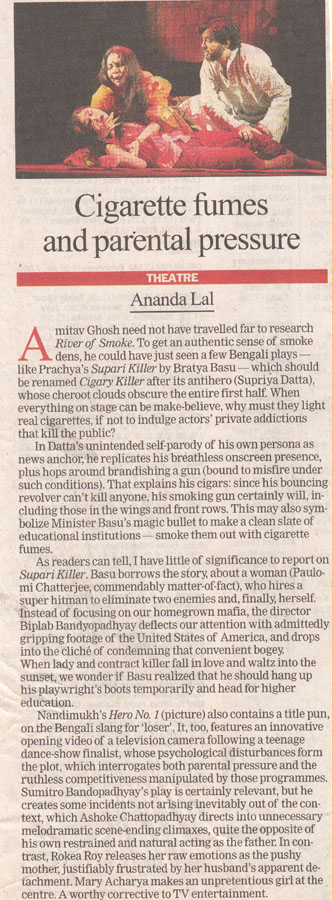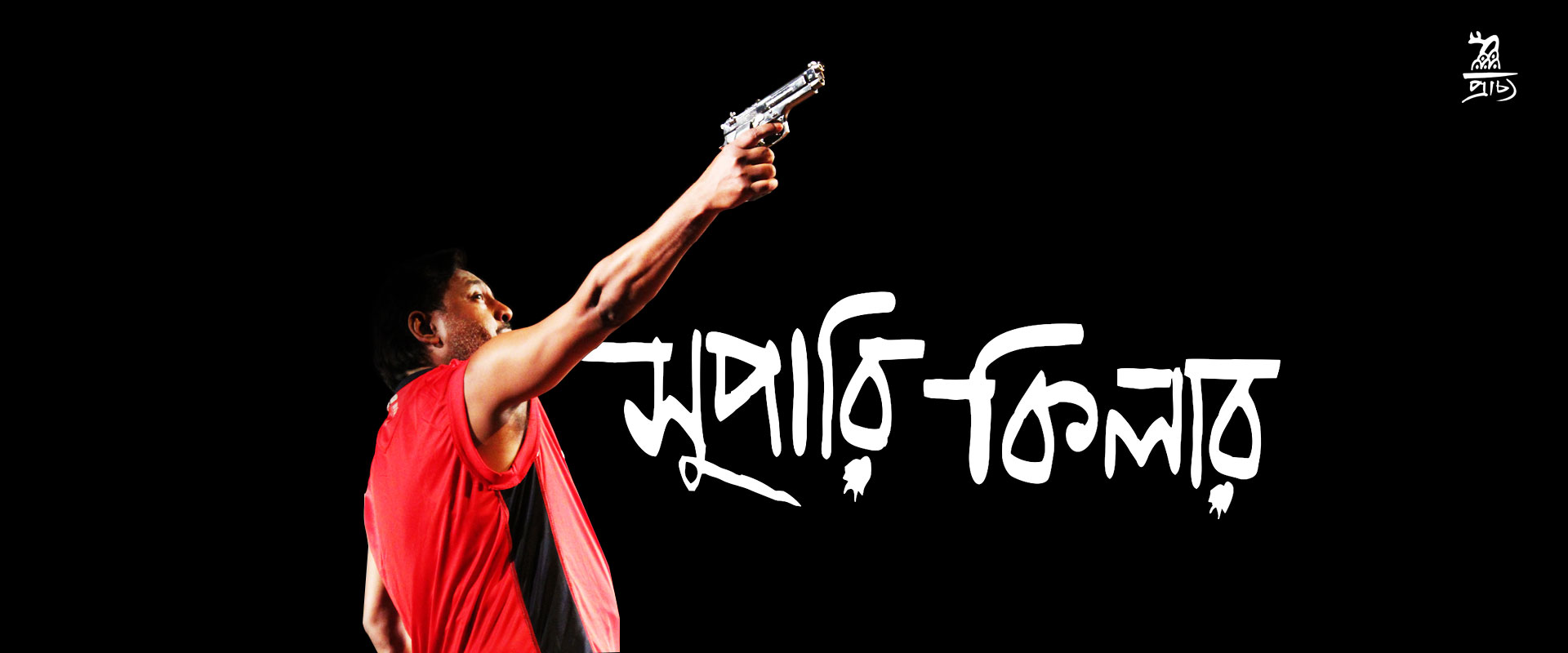

Supari Killer
Director's Note
The saga of our existence in this present era has been portrayed in an amazingly lyrical and poetic manner in the play SUPARI KILLER. When during the course of a natural progression of events in life, men starts to desire a better way of life, a higher standard of living, the path that he has to or may be forced to tread is not a smoothone. The history of exploitation and deprivation exists almost as a continuous factor in the lives of a vast majority of Indians. If one resists or takes a stand against these atrocities he faces an onslaught of aggression, he is labeled as an antisocial, anti-national, a terrorist. Not just here in India, but throughout the world, the few, in whose hand rests the power dynamics, are the ones that dictate the laws of existence. This historical tragedy is the common denominator from Lalgarh to Libya, Manipur to Mayanmar from Kashmir to Cairo. The state, society, any capitalistic forum or may be a religious order, all seems to be a front for this relentless oppression. The playwright has sketched a bleak psychological landscape of this demoralizing and depressing time through his characters. This day to day struggle for existence – in fact a struggle every nano second – forces one to discard honest intentions, discard ones moral value system and put on an alien mask of myriad colours. Fake smiles mask the inner conflicts that gnaw on our conscience. Each of us hides behind a veneer of civilization and calculates the percentages of profit and loss in our personal lives. Starting from the individual to the collective, from a race to a nation, everyone seems to be playing a part in this deadly game.
The playwright has linked these deadly dichotomies of the human mind to the history of human civilization. Ever since a civil society was formed, man’s struggle for existence has always been met with an onslaught of aggression, which has inevitably has captured this predicament in an epic from a fresh lease of life. The playwright has captured this predicament in an epic from through an ultra-realistic mode. And at the same time he has discarded the darkness that shrouds this decaying society and voiced the needs of the sensitive and compassionate beings for a better brighter tomorrow. He has pushed aside the metaphors of Death and Darkness and has extended a hand of love and well-being so as to guide the people to new world, a new life.
Synopsis
The bustling metropolis of this universe throbs with the relentless and frenzied pace of its daily existence. This inhuman and often degrading struggle for survival and finding one’s own foothold takes the shape of a warfare of epic proportions but is seemingly invisible in the designer living rooms of the upper echelons of society.
Killing one another is the order of the day. Killing one ensure the life of another.
One perceives that he is in a higher, bigger, better place than the other and will remain so. He believes only he and his creed deserve to experience all the worldly pleasure, the sensual gluttony. If one wants to erase this divider and search for an equal platform, bloodshed and a gang battle awaits him. A systematic annihilation of his entire existence is set in motion where his child disappears, his brother is killed, his mother raped, his home destroyed. Damayanti, a human being, a woman, our fellow citizen, wants to break down these barriers. And by doing so quite obviously ruffles the feathers of our society’s self-confessed lord and masters and become a target of their disapproval and displeasure which manifests itself in spine chilling oppression. Even her father or her brother is not spared. They hound her at home at her office. On the streets, in the shopping mall, every path that she treads, she is marked down by ruthless cunning that aims to preserve the so called power dynamics. She backs away one step at a time till she reaches a dead end, a blind alley of despair where life can only be described as an unending ocean of loneliness. The upholders of morality in our society irrespective of their cultural or religious hearings relentlessly try to feed doctrines of tolerance and compassion. With her back against the wall, Damayanti will not be satisfied by just breaking down these barriers. She hires a supari killer with the money that she earned by dint of sheer hard work. One by one with extreme professional competence, the hired assassin kills each of the men that Damayanti identifies. After her thirst for revenge is satiated Damayanti wants the death of her tortured soul. She asks rancho the assassins to kill her. Rancho, the herbinger of death refuses to comply. Rancho’s life is played out every day in the blood thirsty high streets of brutal savagery, where he knows that death waits.
Premiered On: 28th May 2011
Cast
- Rancho: Supriyo Dutta
- Damaynti: Poulami Bose
- Father of damaynti: Abhijit Dalal
- Brother of Damaynti: Anirban sengupta
- Jangam: Subhasish Chakraborty
- Jangam Wife: Sumana Kar
- Helicon: Subhasish Chakraborty
- Skipio: Aniruddha Sanpui
- Intendent: Manas Mukherjee
- First Poet: Aniruddha Sanpui
- Second Poet: Pritam Bhattacharya
- Third Poet: Aradhya Banerjee
- Fourth Poet: Keshob Bhattacharya
- Soldiers: Pritam Bhattacharya, Souvik Chakraborty, Gurab Bhatta, Prasenjit Chakraborty
- Chorus: Babin Das, Pritam Chattopadhyay, Aniruddha Sanpui, Manas Mukherjee, Keshob Bhattacharya
Creative Coordinators
- Light – Dipak Mukhopadhyay
- Music – Dishari Chakraborty
- Sound – Jayanta Pal
- Set – Partha Majumdar
- Makeup – Sanjay Pal
- Costume – Gopal Pal
- Dance – Runi, Sombhik Ghosh, Mitul Ghosh
- Mime – Deb Kumar Paul, Suvendu Mukhopadhyay
- Videography – Anindya Samajdar
- Video Projection – Badal Das
- Recitation – Sumantra Sengupta
- Art – Nilabha Chattopadhyay
Production Coordinators
Chief Official – Arun Sen
Creators
- Play – Bratya Basu
- Direction – Biplab Bandyopadhyay
Reviews
